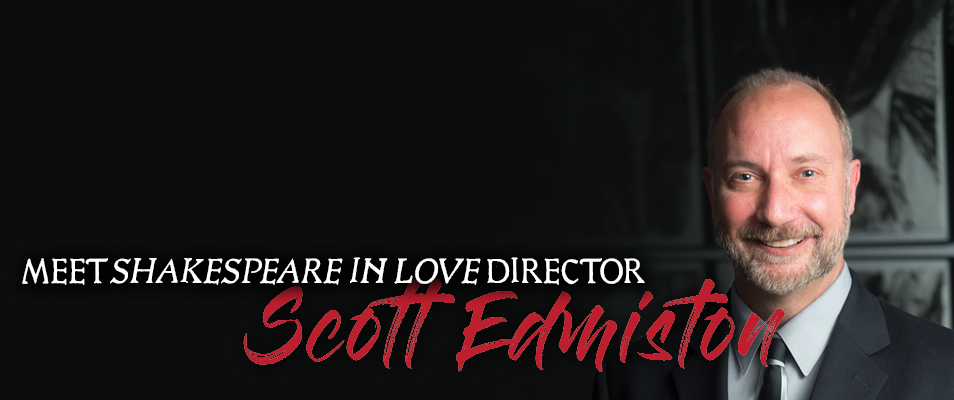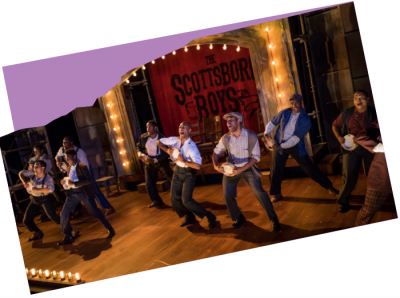Your donation sets the stage for a new season of Boston's most intimate, entertaining and provocative plays and musicals. Our shows make powerful connections with our audiences-- and they are only possible because of you.
Director Scott Edmiston


Director Scott Edmiston
From Casa Valentina to The Light in the Piazza to The History Boys, Scott Edmiston has proven he can direct any genre, both at SpeakEasy and at theatres all over Boston. So how does he categorize SHAKESPEARE IN LOVE? A comedy? A romance? An origin story? All of that and more? We sat down with the four-time Elliot Norton Award-winning director to discuss what makes SHAKESPEARE IN LOVE the perfect love letter to the stage.
What attracted you to direct SHAKESPEARE IN LOVE?
I have very romantic notions about the theatre as an art form, about its traditions and transcendence, and about the power of language and the generosity of the people who call the theatre their home. This play captures those virtues of the stage so brilliantly, with wit and irreverence and a bittersweet melancholy.
How would you categorize the play? Is it a romance? A comedy? A backstage farce?
Well it’s all of those things. As with much of Shakespeare’s writing, it can defy defined dramatic forms and genres. As You Like It begins like a tragedy and then turns comic. SHAKESPEARE IN LOVE combines the star-crossed love story of Romeo and Juliet with the delicious comedy of amateur players performing Pyramus and Thisbee in A Midsummer Night’s Dream. It can also be seen as a feminist play or a story about gender roles. Ultimately though, I think of it as an origin story. How did Will become Shakespeare?
How does the play differ from the Academy Award-winning film from which it was adapted?
The film was absolutely wonderful, but it’s an oxymoron: a movie about the power of theatre. The outrageous characters, the poetic language, the thrill and uncertainty of being present at the opening night of Romeo and Juliet – these elements become more vivid on stage than on screen. We embraced the anachronisms, blending the classical and contemporary which one can do easily in a theatrical world. We also approached the play as an ensemble story rather than a star vehicle. All of the people who interact with Will somehow contribute to his evolution, his discovery of the artist he was meant to be.
In doing your research, what did you learn about Shakespeare that you didn’t already know?
I learned so much about the theatre culture of that time – so vibrant, sprawling, ambitious, messy. SHAKESPEARE IN LOVE is fiction, but it draws upon the lives of several historical figures – Philip Henslowe, Ned Alleyn, Richard Burbage. Many playhouses produced nearly a play a week, so most of them were probably awful. I learned more about Shakespeare’s relationship with the fascinating Kit Marlowe. Did you know that they were called poets not playwrights? Nearly all of Shakespeare’s life and personality remains a mystery, so I found it entertaining to imagine who he was and why he wrote what he did. If he did.
What was the most rewarding aspect of bringing this show to the stage?
Like a Shakespeare play, it is epic in its dimensionality – incorporating acting technique, dancing, singing, music, fencing, dialects, even drag performance. You get lowbrow comedy and poetic tragedy. And a dog. Audiences love a dog.
What do you hope audiences will take away from their experience by seeing the show?
We tend to think of Shakespeare’s plays as important and “good for you.” I hope this production will help all of us rediscover the sheer joy in his writing. I hope it will humanize Shakespeare, to help us feel closer to him as a universal spirit, a young rebel with music in his heart and poetry in his soul that remain undiminished by time. That Will do.
 Past Productions
Past Productions The Antiquities
The Antiquities Swept Away
Swept Away




